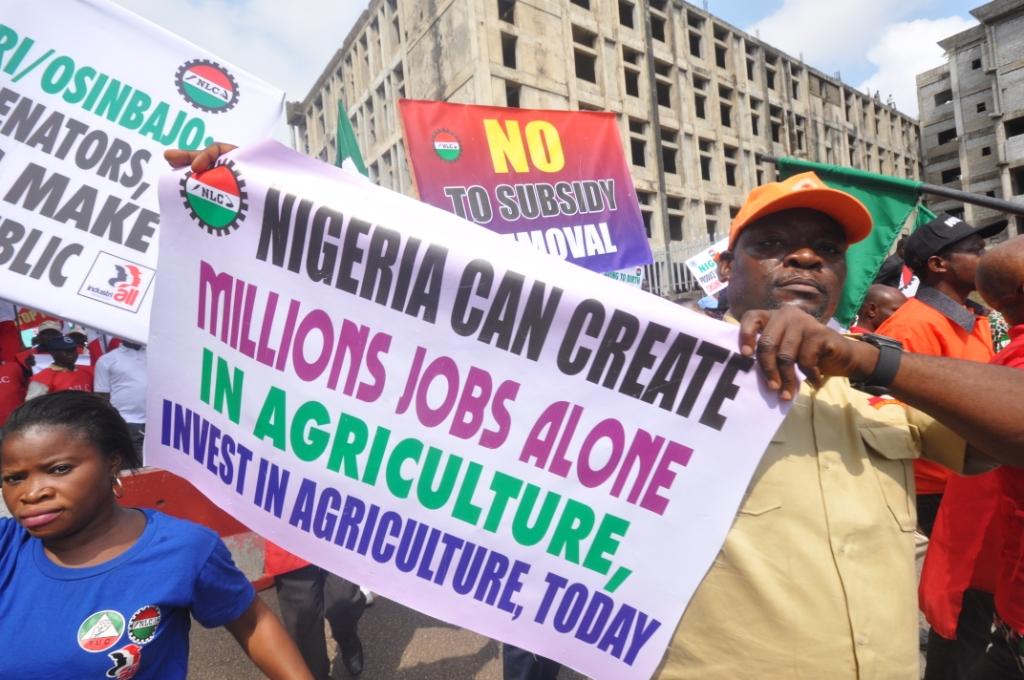The Nigerian labour movement has warned the Muhammadu Buhari-led government over going with the clamour for the sale of the nation’s oil assets as a measure to cushion the effects of the recession.
The Nigerian Labour Congress, NLC, on Wednesday, September 21, 2016 described those pushing for the measure as enemies of the country, who are only bent on acquiring the nation’s assets for their personal use.
NLC president, Ayuba Wabba insists that the labour union was against the suggestion that the federal government should sell off national assets to address challenges.
He said that most of the privatisation in the country has not worked and Nigeria lost value and the national assets eventually either went bust or are struggling. So, privatisation has never been in the interest of Nigerians.
“First, most of our national assets they have sold under the banner of privatisation, none of them has succeeded,” the NLC president told The Nation.
“Many countries of the world has passed through this same period of recession and their approach to addressing the issue is not to sell their commonwealth, leaving them in the hands of a very few.
“It is worrisome that those canvassing for this are looking forward to buying these assets themselves. I don’t think it will be productive for us as a nation to dispose off these assets to meet short time need. It will certainly not be productive and not in the interest of the larger Nigerian public.
“As NLC, we are against the sale of those assets because we have tried it even in the power sector and the result is very obvious. Those people are looking for opportunity to buy those assets themselves. We are against it, especially selling them to individuals because of the gee viols effect of those assets that have been sold in the last.
“In the past, they were sold at give away price and people just amassed them for themselves.
“There can be a coexistence with people coming to invest side by side and for the government to strategically hold on to these assets. NLC is totally against the sale of these assets in the name of trying to address a short time need to address the challenges we are passing through. That is not what other countries have done.”
Wabba said should the government listen to the proposal and sell off the assets, organised labour will lock down the nation until the decision is reversed. “If they go ahead to sell the assets, we will protest. We have done that in the past,” he said.
“When it comes to selling off our national assets, if you remember, there was a time when they tried to sell the refineries when Obasanjo left office. We protested against it and that was how that decision was reversed. It is not as if these assets cannot add value, but because they have not been allowed to operate maximally.
“Take the refineries, for example. Our refineries are still among the newest in the world and so, if we add value to them, it is possible for the refineries to stop importation. It is because of inherent corruption that these refineries have not been allowed to work.
“Instead of addressing the corruption, what they did was to shift the to the larger Nigerian people without addressing the inherent challenges in the system.
“Our position is very clear and that is the fact that we are against their sales because they are for our children and generations yet unborn. We will be doing a lot of disservice if we sell such items. How are we sure that if we sell them, it will address the current challenges.”
Wabba said the congress made its position on how to get the economy back on track known to the President.
He said: “So, we must look at our fiscal policy, we must restructure our fiscal policies and try to work towards production and ensure that we are able to stimulate economic activities, considering the fact that a lot of savings have been made from recoveries made as a result of funds that were taken away as a result of corruption.
“These funds should be deployed immediately to stimulate economic activities. It is also very key to stabilise our power sector because no economy can move forward or engage in meaningful production without stable power supply. ”







